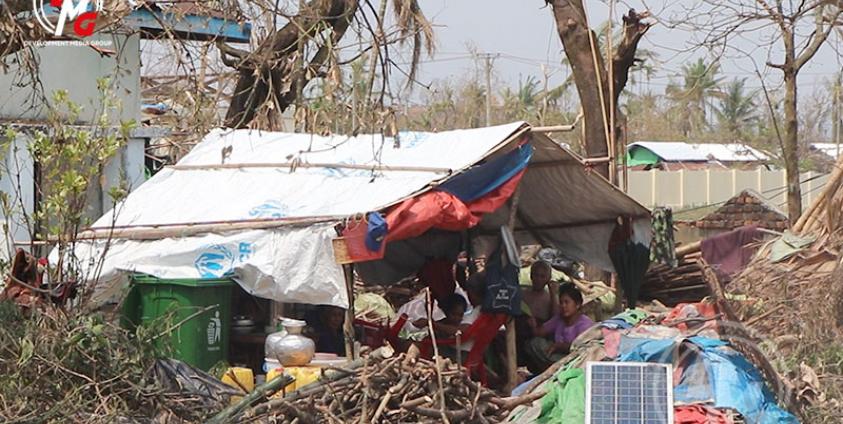Armed conflict has left over 58000 displaced individuals unable to return to their homes in Rakhine State and Paletwa Townships, Chin State, according to a United Nations Human Rights Council (UNHCR) report.
Among the townships in Rakhine State, the distribution of displaced individuals is as follows:
Buthidaung hosts 5,088, Kyauktaw 10,278, Mrauk-U 16,565, Rathedaung 12,979, Ponnagyun 3,199, Minbya 211, Sittwe 3,835, Myebon 1,442, and Ann 9. In addition the geographically connected Paletwa in Chin State shelters 4,472 displaced persons, as reported by the UNHCR's Rakhine State office.
The inability of displaced individuals to return to their homes stems from factors including the presence of armed forces around their villages, the ongoing risk of renewed conflicts, the imminent danger posed by landmines, and the absence of security assurances.
Daw Ma Shwe Win, a resident of Yesoechaung village in Rathedaung Township commented.”"Our requests to both sides are simple: no more fighting, remove the landmines, and help rebuild our homes. We just want to return home, and whether this can happen largely depends on the armed groups involved.”
For nearly five years, the Yesoechaung residents have sought refuge in the Saetipyin refugee camp due to intense clashes between the Military Council and the Arakan Army (AA) near their home village. Following the clashes, the Military Council established an outpost and deployed there on the eastern hill of the village in 2018, causing the villagers to hesitate about returning to their homes.
The challenges for the displaced individuals worsened when Cyclone Mocha hit on May 14th. The cyclone's damage destroyed the temporary dormitories in the camps, leaving them struggling to find shelter.
"The storm almost destroyed our entire home. We're using small poles to prop it up for now and find temporary shelter. We received only 30,000 kyats from WFP (World Food Programme), which isn't enough. Prices for everything are skyrocketing, and we can't manage things like education for our children, or our family's health expenses”, Ma Nwe Nwe Tun, a refugee residing in Kawiyadana camp in Kyauktaw told DMG.
Following the informal ceasefire agreement with AA in November 2022, the Military Council permitted the return of certain displaced individuals in Ponnagyun, Kyauktaw, Mrauk-U, Minbya, Ann, and Paletwa townships based on humanitarian considerations.
However the Military Council constantly avoids taking responsibility for the rehabilitation requirements of those who have returned, emphasizing the necessity to address the secure and peaceful reintegration of displaced individuals as a crucial topic during peace negotiations, as highlighted by U Aung Thaung Shwe, a former Member of Parliament.
"During peace talks, some displaced people were compelled to return home, yet authorities didn't support their return properly. It's the authorities' duty to assist them,
and this topic deserves more attention in peace discussions. Currently overlooked due to lack of discourse”, he pointed out.
The refugees' situation deteriorated as the Military Council not only ignored the needs of the war-displaced individuals, but also hindered supply delivery during the aftermath of the cyclone.
Under these circumstances, certain individuals displaced by the conflicts find themselves compelled to purchase and consume supplies provided by the United Nations (UN) and charitable groups from local markets.
Photo caption - A war-displaced family from Rathedaung Township is seen in the post-cyclone period on May 18th








